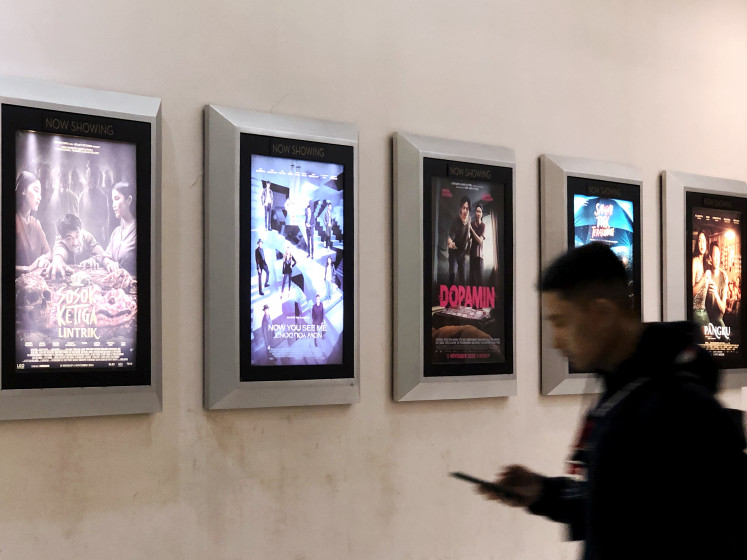Popular Reads
Top Results
Can't find what you're looking for?
View all search resultsPopular Reads
Top Results
Can't find what you're looking for?
View all search resultsIs film censorship necessary?
A scene from the movie ?
Change text size
Gift Premium Articles
to Anyone
A
span class="caption" style="width: 398px;">A scene from the movie ?. Courtesy of Mahaka PicturesIndonesian filmmakers have always faced the threat of censorship, whether under the Old Order, the New Order or the Reform era.
All films, Indonesian or foreign, go to the Film Censorship Board (LSF) before they are screened in local cinemas. However, in addition to the LSF — the nation’s official film censor — there has been pressure from members of the public to ban particular movies.
During Ramadhan this year, local broadcaster SCTV was threatened by the hard-line Islam Defenders Front (FPI) when it planned to present a recent film on religious pluralism with the unique title ?.
Bowing to the pressure, the television station dropped the plan to screen the film, directed by Hanung Bramantyo.
In a discussion with journalists, Hanung said he was bewildered by his film’s rejection by Muslims, hard-liners or not. He thought people would understand his true purpose was to clarify misleading arguments about Islam.
He was wrong.
“As a Muslim, I have a responsibility to counter arguments which portray Islam a radical religion. I am defending Islam from such attacks with this film, but many Muslims accuse me of profanity and apostasy,” he said.
He was powerless when representatives of several Muslim organizations forced cinemas in some cities to stop screening the film.
SCTV played it safe by canceling its plan to screen the film. Harsiwi Ahmad, the station’s programming director, said she still wanted to air Hanung’s film, albeit after tensions eased.
“I would not have bought the film if it did not have good quality and values. We haven’t had further internal discussion on when to air it, but I certainly look forward to it,” she said.
Tito Imanda, the head of Binus International University’s film department, said SCTV had every right to air the film, since it had already been approved by the LSF.
Hanung’s film adds to the long list of provocative movies that have been censored or banned in Indonesia.
In 2009, the LSF banned a screening of the Australian film Balibo Five at the Jakarta International Film Festival, arguing that it might have opened old wounds. The film tells the story of Australian journalists massacred in East Timor in 1975.
In 2010, the FPI threatened to use force to shut down the Q! Film Festival, which presents queer-and HIV/AIDS-themed films. The festival completed its most recent edition earlier this month, conducted with a low profile and with very little publication and media exposure.
The first Indonesian film to be banned from the nation’s screens was the brilliant psychological war drama Pagar Kawat Berduri (the barbed wire fence, 1961). The movie, helmed by Wahyu Sihombing, told the story of independence fighters led by Sukarno M. Noer as they tried to survive life in a Dutch prisoner of war camp. The film was banned under pressure from the now-defunct Indonesian Communist Party (PKI).
Other films were banned out of fear that their content might cause controversy. Romusha (1972), for example, was scrapped by the government to protect relations with Japan, while Nyoman dan Presiden (Nyoman and the President, 1989) was changed to Nyoman Cinta Merah Putih (Nyoman loves the flag).
Tito said that the nation’s film industry needed a film classification agency, not a censorship body. Such an agency could determine which films were appropriate for children, teenagers or adults.
“There should be clear rules on, for example, the duration of scenes on kissing or the presence of drugs and smoking scenes that are not suitable for children. This, however, should be followed by strict regulation of the cinema,” he said.
Twenty-five Indonesian films have been banned from local exhibition since the 1960s, according to the invaluable reference website filmindonesia.or.id, managed by the National Library and the non-profit Indonesian film archive Sinematek.
“Politics used to be the reason why films were banned in the past. Now we see films banned for moral reasons,” Tito said.
“This is nonsense.”










